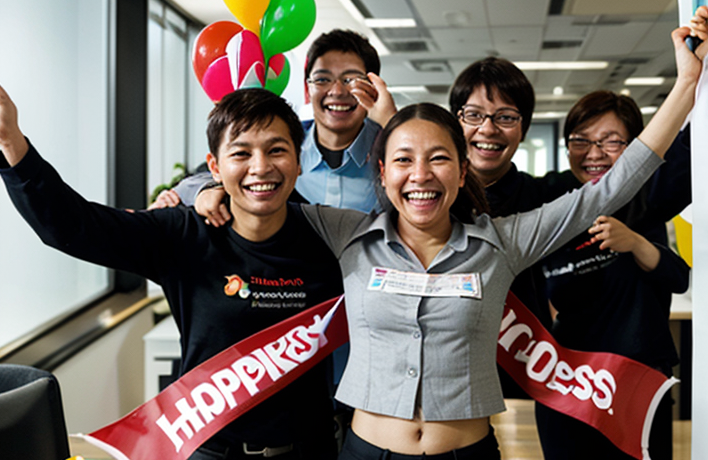Will HR Be In Demand In The Future
The HR function has changed a lot over time. It started as a simple administrative job. Now, it is a strategic partner in companies. Big firms utilize data to improve employee experience. They analyze trends to make smart choices. The shift from paperwork to digital tools is significant. For example, SAP SuccessFactors offers software that supports HR tasks efficiently. This helps gather and analyze employee data.
Are You a Good Fit for This Job?
In another case, Google has changed its approach to HR. They focus on data-driven choices. Their People Analytics team looks at employee behavior. They use this information to create better jobs. As a result, employee satisfaction rises. Employees enjoy a workplace that values them. This leads to increased productivity and retention.
- Amazon uses algorithms to streamline hiring.
- Deloitte enhances leadership programs through feedback data.
- Netflix developed a culture of freedom and responsibility.
These companies show how HR can impact business. HR is no longer just about payroll and policies. Instead, it drives strategy and innovation. With technology, HR becomes essential in business growth. This trend shapes future workplace cultures. Organizations that leverage HR tech are ahead of the rest.
The shift makes HR adaptable. They must respond to quick changes in the market. Flexibility allows HR to address modern challenges. Companies need to attract diverse talent. HR now plays a part in creating inclusivity. Therefore, a people-centric approach becomes key. It is not optional any more.
Leading HR teams must have important skills. They need strong communication and analytical abilities. Strategic thinking is also critical. A data-savvy HR professional can drive change. However, many HR teams still struggle with this shift. They may resist new technology.
Overcoming this resistance involves training and support. Employees need to feel comfortable with new tools. Investing in HR technology pays off greatly in the end.
Predicting the Skills of Future HR Professionals

HR professionals must be ready to adapt. Change is constant in the workplace. Skills must evolve, too. Digital literacy will be key. This skill allows HR to use new technology effectively.
A strong grasp of tools and software is essential. AI is reshaping the work we do. Many tasks will become automated. Humans will need to manage technology efficiently. This adds a new layer of responsibility.
As the demand for HR roles continues to rise, understanding the trends in the industry is vital. For more insights into the current market, check out this article on the demand for HR jobs.
HR must also focus on emotional intelligence. Understanding others’ feelings is important. Empathy will help in building strong teams. Conflicts can arise in any workplace. HR should handle these conflicts with care. Incorporating tech and emotion is no easy task. Let’s consider a hiring example.
- Meet Emma. She is an HR director.
- Emma uses AI to screen resumes.
- She saves time, but still talks to candidates.
- She listens to their passions and goals.
This balance of skills makes Emma successful. The future HR on the hand will need more skills. Besides the technical skills, they should work well with people.
Collaboration will be important in the next years. HR will act as a bridge connecting employees and tech. They must create a culture of trust. Building strong teams requires more than just hiring.
They should also track employee well-being. This means understanding needs now. It is crucial for retention and happiness.
Adaptability in the Face of Change
Adaptability should also take center stage. When policies change, HR must lead. Leaders must embrace flexibility and innovation. Old practices may not work anymore. Fresh ideas will drive progress.
In fact, some organizations are shifting to a remote model. That impacts how HR operates. New skills must adapt to remote settings. They need tools and must engage people digitally.
Bridging gaps between virtual and in-person collaboration is essential. Communication tools and platforms ensure everyone feels included. In conclusion, future HR will require a mix. Skills include digital know-how, emotional insight, and adaptability.
Work From Anywhere Opportunities:
HR will continue to navigate a changing landscape. This is vital for organizational success. The role of HR has never been more important.
Challenges Ahead: Navigating a Hybrid Workforce
The modern workplace is changing fast. Hybrid work models are now common. Companies are adapting to these shifts. Employee engagement becomes a big issue. How do we keep everyone involved?
For instance, a tech firm faced low morale. Team members worked from home and felt isolated. The company introduced virtual coffee breaks. It helped employees connect better. The unsocial atmosphere began to shift.
Sustaining workplace culture can be tricky. In-person and remote workers may feel disconnected. Building a unified team is key. HR leaders need creative solutions. They can organize regular check-ins. These moments bring everyone together.
Inclusivity is also crucial. Everyone should feel valued and included. HR must train managers on this aspect. They need to be aware of different experiences and backgrounds. Companies can make a difference by listening.
For example, a manufacturing company took action. They held forums to gather input. Employees could share thoughts on remote work. This helped improve policies.
- Promote open dialogue in teams.
- Celebrate small victories together.
- Encourage team-building exercises.
Each strategy fosters belonging. It creates a strong culture. Adapting to hybrid models takes effort. Companies must also plan for unexpected challenges. They should be flexible and ready to adjust.
Handling this new dynamic won’t be easy. But innovative strategies can help. HR departments will play a major role. Their importance will only increase. Being proactive is vital in this journey.
The Rising Importance of Employee Well-being

Employee well-being is crucial for productivity. A healthy workforce can achieve more. Studies show a direct link between well-being and job satisfaction. Higher well-being leads to lower turnover rates. This relationship is vital. It’s not just about work output. It’s also about morale.
HR plays a key role here. They must implement supportive initiatives. Policies focusing on mental health are essential. For instance, companies like Google offer mindfulness programs. These programs help reduce stress. Employees feel more valued and happy. This creates a better work environment.
Research highlights the impact of kindness at work. A culture of support can boost engagement. Employees thrive in friendly settings. Trust strengthens bonds. Employees share ideas freely. This leads to innovation.
- Encourage open communication.
- Offer flexible work hours.
- Provide resources for mental health.
- Implement regular wellness check-ins.
Moreover, understanding employees’ needs is vital. Not everyone faces the same challenges. HR must listen and observe. Individualized support leads to better results. For example, offering counseling services helps employees significantly. Workplace well-being has steady improvements when HR takes charge.
Each of these points matters. A flexible schedule can help balance work and life. At Airbnb, employees enjoy mental health days. They promote a healthy work-life balance. Workers know their health is important.
As we face changing work environments, the human element remains key. HR can create inclusive spaces. Workers should feel safe, no matter their background. Investing in mental health reflects a commitment to employees. This shows that the company values them.
In conclusion, focusing on employee well-being leads to many benefits. It enhances productivity and retains talent. HR’s involvement is crucial to making this happen. The future of work is compassionate.
Looking Ahead: The Future of Work and HR’s Role
The future of work is changing fast. Remote work is a big part of this shift. Companies now embrace flexibility and autonomy. HR will play a vital role in this new environment. Technology is transforming how teams communicate. New tools enhance collaboration across distances.
Talented individuals expect more from their jobs. They want purpose, growth, and connection. Statistics show that 70% of workers seek well-being at work. Employers must adapt to meet these needs. HR professionals need to craft a strong company culture.
- Manage hybrid teams effectively.
- Ensure all voices are heard.
- Create inclusive policies.
Experts believe that data analytics will guide HR strategies. They will use data to identify challenges and opportunities. This approach will improve hiring, training, and retention. The role of HR will extend beyond just hiring. It will become a partner on business strategy.
Technological integration is crucial. From AI in recruitment to remote training programs, tech is everywhere. HR must be technology-savvy. This knowledge will help them lead change. Future HR professionals need to embrace new skills. They should understand data protection and employee rights.
A strong talent management strategy is key. Companies need leaders who can inspire. Those leaders should also know to nurture talent. Organizations will depend on their HR teams to create strong leaders. In the next years, this will matter more than ever.
Challenges will arise with a hybrid workforce. Ensuring team cohesion is no easy task. Engaging and motivating employees becomes more complex. HR must bridge gaps in understanding and culture. This challenge isn’t a roadblock; it’s an opportunity.
Employee well-being rises to the forefront. Mental health support is no longer optional. A supportive environment will attract top talent. HR can implement programs and resources to promote well-being. This focus on care leads to better engagement and productivity.







